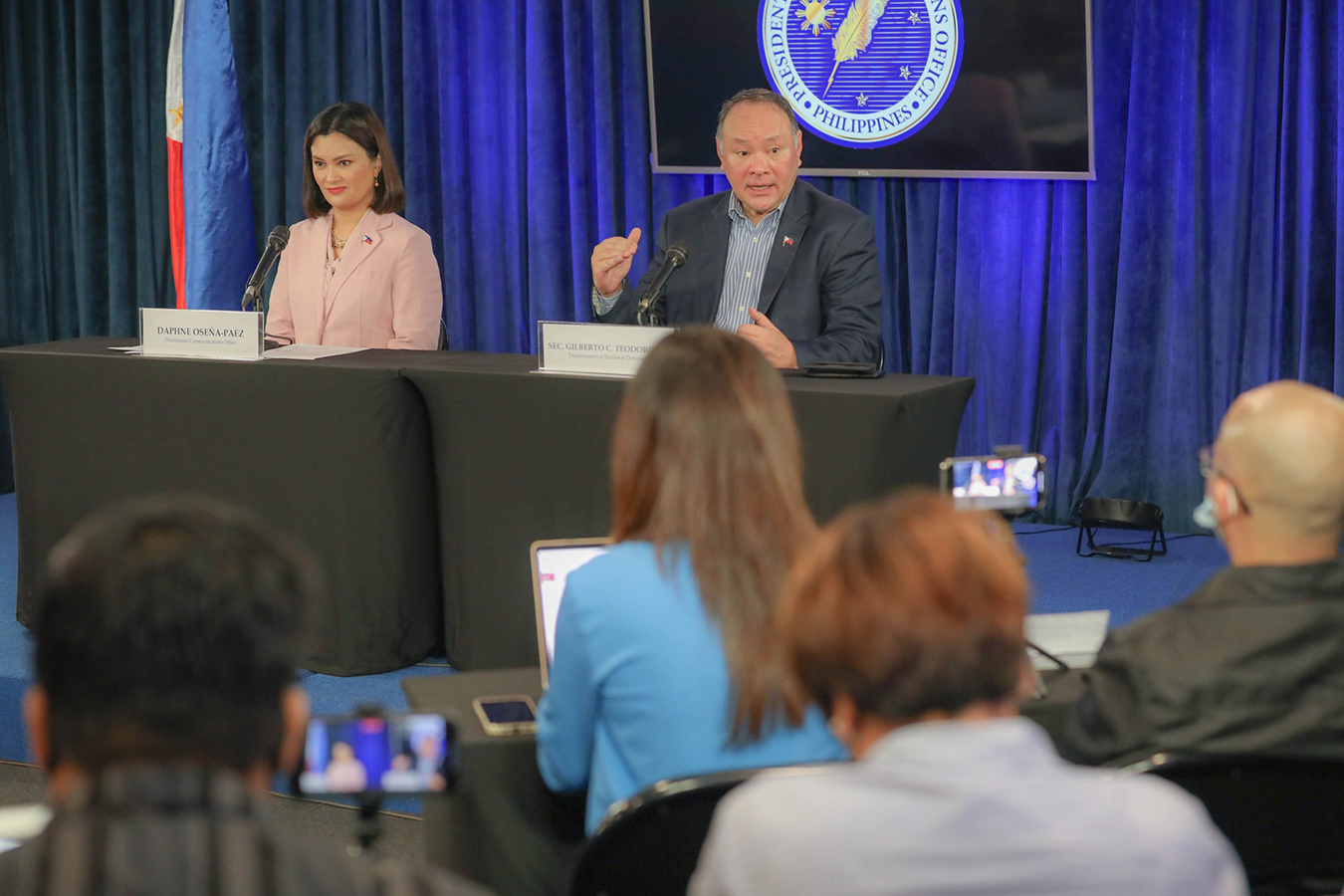
The continuing non-monetary benefits that the government provides soldiers and their families would entice them to stay longer and wait for their mandatory retirement from the military service, Department of National Defense (DND) Secretary Gilbert Teodoro Jr. said on Thursday.
In a press briefing in Malacañang Palace, the newly-appointed Defense chief noted that these non-monetary benefits such as healthcare service and skills upgrading initiatives in the Armed Forces of the Philippines (AFP) would serve as prime consideration for enlisted personnel not to retire early.
“I mean, it’s a matter of getting an amount now, without the continuing non-monetary benefits that you will enjoy in your career path, in your career pattern. Kung magi-invest nga tayo sa skills upgrading, sa healthcare, hindi lamang ng ating kasundaluhan, kung hindi pamilya, and other non-monetary opportunities, palagay ko, maiiwan sila,” Teodoro said.
The DND official made the statement in response to the possible exodus of enlisted personnel from the military organization because of the looming reforms in the military and uniformed personnel (MUP) pension system.
“At lalo na kung makikita nila na ang sakripisyo nating lahat ay magiging (para) sa kabutihan ng lahat. Kasi, okay, huwag nating sulbahin ang problema, alright. Anong mangyayari? Magkakaroon tayo ng mas malaking deficit, magkakaroon ng inflation, bababa ang balor ng ating pera, tataas ang bilihin,” Gilberto pointed out.
“So, I think it’s a matter of explaining the necessity of introducing. Sa aking palagay, dahil galing din naman ako sa financial sector, hindi naman biglaang mangyayari ito, mababawasan lamang ang dapat na pagdurugo. ‘Ika nga ng ating gobyerno hanggang sa ma-self sustain na itong sistema na ito,” he added.
In March, President Ferdinand R. Marcos Jr. approved a “game-changing” MUP pension reform aimed at fixing their pension system and addressing future fiscal uncertainty,
“So we want to reform them. And right now, the situation is so bleak, for example, that if you compare the current operating expenditures with maintenance and operating expenditures or maintenance and operating expenditures of the whole AFP and the capital outlays so the money they buy for airplanes, etc., etc., it is actually much less than the amount of pension that we are allocating for the retirees,” Finance Secretary Benjamin Diokno Jr. previously said.
“So there will come a time when the current budget will only be about a third, one-third, or one-fourth of the money that we’re paying for the pensioners. So we have to really address that issue. It’s not sustainable,” the Department of Finance chief pointed out.
Diokno said the pension being received by a military pensioner is nine times higher than the average pension of a pensioner under the Social Security System (SSS), and three times higher than the average pension under the Government Service Insurance System (GSIS).
The Finance chief said the proposals for the pension reform include application of the reform to all active personnel and new entrants, removal of automatic indexation of pension to the salary of active personnel of single ranks, and mandatory contributions to be required for active personnel and new entrants similar to the GSIS pensioners.#

